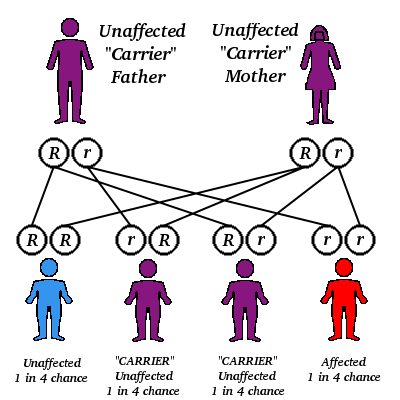I) The relationship between low cholesterol and depression as well as aggression
It has been shown that patients with low cholesterol show hypersensitivity in the detection of anger and sadness (1). Men with a lower cholesterol level have a higher prevalence of depressive symptoms (2-4). Hillbrand et al showed that total serum cholesterol concentration was positively associated with measures of affect, cognitive efficiency, activation, and sociability, suggesting a link between low total serum cholesterol and dysphoria (5). Some studies have even demonstrated an association between low cholesterol levels and suicidal tendencies (2,6).
In addition to being predisposed to depression, patients with low cholesterol levels seem to be predisposed to aggression as well: Hillbrand et al have also shown that patients with low cholesterol levels (<200mg/dl) are engaged in more frequent aggressive behavior and that the relationship between cholesterol and frequency of aggression was curvilinear, with the most frequent acts of aggression committed by patients with moderately low cholesterol levels (7). In primates, cholesterol reduction has been linked to increased behavioral acts of aggression (8,9). Other studies have demonstrated the association between low cholesterol levels and very severe impulsive aggressiveness (10-12).
The well-documented negative association between serum cholesterol and aggression has led Kaplan to propose a cholesterol-serotonin hypothesis of aggression. According to this hypothesis, low cholesterol level leads to depressed central serotonergic activity, which itself has been reported in numerous studies of impulsive individuals (5). These findings have also led this author to advance the hypothesis that minor thalassemics, who show low serum cholesterol levels, may be predisposed to impulsiveness (13).
II) Low cholesterol level in dermatitis herpetiformis and III) The hypothesis
It was shown by Lear et al (14) that in patients suffering from dermatitis herpetiformis (DH), cholesterol levels were significantly lower than in normal persons. There were no significant differences in lipids between those on a gluten-free diet and those on dapsone. The reason for lower lipid levels in these patients have been mainly attributed to intestinal villous atrophy; since some of the lipid particles, particularly LDL, are synthesized in the gut (14). The lower lipid level is probably the most important reason for increased life span of these patients (14).
Conclusively, considering the facts that I) low cholesterol level predisposes individuals to depression and aggression and II) cholesterol level is decreased in DH, it could be postulated that patients suffering form this illness may be more susceptible to depression and aggressive behavior. In particular, patients with DH who are also minor thalassemic seem to be at the highest risk and may need careful psychiatric surveillance.
References
1. Guggenheim CB, Foster HG Jr. Serum cholesterol and perception of anger and sadness. Psychol Rep. 1995; 77 (3 pt 2): 1343-5.
2. Ainiyet J, Rybakowski J. [Low concentration level of total serum cholesterol as a risk factor for suicidal and aggressive behavior. I Psychiatr Pol. 1996; 30(3): 499-509.
3. Steegmans PH, et al. Higher prevalence of depressive symptoms in middle-aged men with low serum cholesterol levels. Psychosom Med. 2000; 62(2):205-11.
4. Orengo CA, et al. Association of serum cholesterol and triglyceride levels with agitation and cognitive function in a geropsychiatry unit. J Geriatr Psychiatry Neurol. 1996: 9(2): 53-6.
5. Hillbrand M, et al. Serum cholesterol concentrations and mood states in violent psychiatric patients: an experience sampling study, J Behav Med. 2000; 23(6): 519-29.
6. Modai I, et al. Serum cholesterol levels and suicidal tendenciese in psychiatric Inpatients. J Clm Psychiatry. 1994; 55(6): 254.
7. Hillbrand M, Spites RT, Foster HG. Serum cholesterol and aggression in hospitalized male forensic patients. J Behav Med. 1995, 18(1):33-43.
8. Kaplan JR, Manuck SB, Shively C. The effects of fat and cholesterol on social behavior in monkeys. Psychosom Med. 1991; 53(6):634-42.
9. Kaplan J, et al. Demonstration of an association among dietary cholesterol, central serotonergic activity, and social behaviour in monkeys. Psychosom Med. 1994; 56: 479-84.
10. Spits RT, Hillbrand M, Foster HG Jr. Serum cholesterol levels and frequency of aggression. Psychol Rep. 1994; 74(2): 622.
11. New AS, et al. Serum cholesterol and impulsivity in personality disorders. Psychiatry Res. 1999; 85(2):145-50.
12. Golomb BA, Stattin H, Mednick S. Low cholesterol and violent crime. J Psychiatr Res. 2000; 34(4-5):301-9.
13. Namazi MR. Minor thalassemia may be a risk factor for impulsiveness. Med. Hypotheses. 2003; 60(3):335-6.
14. Lear JT, et al. Risk factors for ischemic heart disease in patients with dermatitis herpetiformis. J R Soc Med. 1997; 90:247-9.
M.R. Namazi, MD
Dermatology Department, Shiraz University of Medical Sciences, Shiraz, Iran
COPYRIGHT 2004 Journal of Drugs in Dermatology, Inc.
COPYRIGHT 2005 Gale Group



